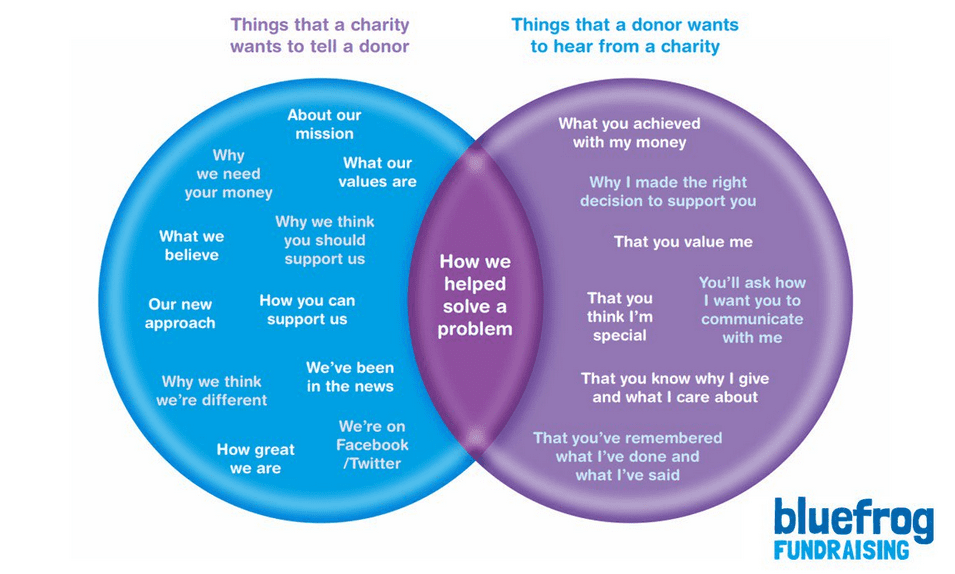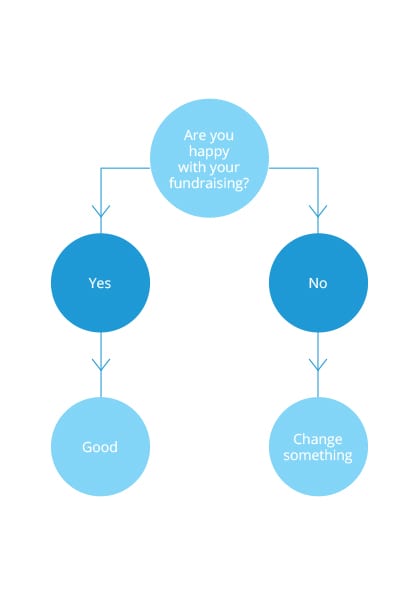Five things we learned at the IFC
Following a very enjoyable few days at the International Fundraising Congress in Amsterdam, I've put together my key take aways from the event.
1. There's loads more to data than just numbers.
Chuck Longfield, Blackbaud's chief scientist, has a job where he can crunch millions of numbers from a huge range of charities. If a question pops into his head, it doesn't take him long to find the answer.
In his session, Chuck shared some of his findings which included the following juicy nuggets…
- If someone calls you to change their address they are TEN times more likely to leave you a legacy (or upgrade, or set up a regular gift or anything else you might ask them to do).
- Donors who tend to give uncommon amounts (e.g. £32) are much easier to upgrade than those who give common amounts (e.g. £25).
- Donors get hooked on giving amounts. After 4 years they are 80% more likely to stick to their preferred amount rather than increase their gift (rising to 90% after 5 years).
- Calling a donor to thank them (whether you speak to them or just leave a message on the answer phone) can increase their next year's gift value by up to 40%.
- Misspelling someone's last name can decrease gift size by up to 12%.
2. Old school communications are the best for building deep engagement
AJ Leon is Chief Maker of Trouble (that's a real job title) at Misfit Inc. in New York. AJ told a story of how he helped raise $72,000 for a total cost of $250. He included a few key insights too...
- Stories have to have conflict. If Frodo had just skipped into Mordor and tossed the ring into the volcano, no one would have cared.
- The tools of fundraising are changing, but the principles of engagement are the same.
- People don't automatically trust big brands any longer - including charity brands.
- Never let your organisation get in the way of a good story.
- When launching a campaign always ask which bloggers you can link up with.
- Social media has made donating even more annoying.
- Management boards kill great ideas.
- Things are moving so fast that spending time writing a ten year strategy is worthless.
You can see AJ's presentation here. And you might like to read Paul de Gregorio's thoughts on it here.
3. The recession is here to stay
Tony Elischer (amongst others) pointed out that the recession is going to be sticking around for a long-time yet but that was no reason to accept poor results. He highlighted the fact that over 60% of donors only give once, describing it, quite rightly, as shameful...
"That's not the fault of people who are giving. That's our fault. We're still not getting that second gift."
He showed how organisations like Christian Aid have bucked the trend by fundamentally changing their fundraising offer, recruiting donors by focusing on work that donors want to support and allowing them to give in the way that works for them.
4. Rubbish in = rubbish out
Direct Mail is working. Digital is working. Mobile is working. The trouble is they don't work if the underlying idea, content and offer is rubbish.
5. Everything on the internet is just speeded up direct marketing
Beate Sorum of the Norwegian Cancer Society put together a great presentation that tackled one of the ongoing myths of the fundraising world – that digital fundraising is magic. It isn't.
What was particularly interesting about Beate's presentation was the distinction she made between communicating online and through a press ad or DM pack. The difference is one of size. And that's the problem...
"On the internet we can put up any crap...so we forget to prioritise, we forget to ask and we forget to rigidly monitor and analyse".
Her advice was that we should re-learn our direct marketing and remember to test what we ask for, how often we ask and who we ask.
Or in other words, we need to give donors an opportunity to do something they want about something they care about.
You can see Beate's presentation here.
Tags In
Related Posts
4 Comments
Comments are closed.
The Essentials

Crack the Code to Regular Giving: Insights, Strategies, and a Special Giveaway!

‘Tis Halloween. Keep to the light and beware the Four Fundraisers of the Apocalypse!

Why do people give? The Donor Participation Project with Louis Diez.

A guide to fundraising on the back of a postcard

What does the latest research tell us about the state of fundraising?









Thank you so much for the kind words, and copious notes on the workshop, Mark. SO glad you found them useful. Look forward to grabbing a pint in London someday. 🙂
Thanks for the mention Mark, great post.
I agree with you on a lot of points worth made. May it be making a deep engagement, a good quality idea and direct marketing. Thanks for this useful article.
Enjoyed your post and shared with my readers here:
http://npcoach.com/2011/10/26/five-things-queer-ideas-blogger-learned-at-ifc/
Nancy Patterson
npcoach.com